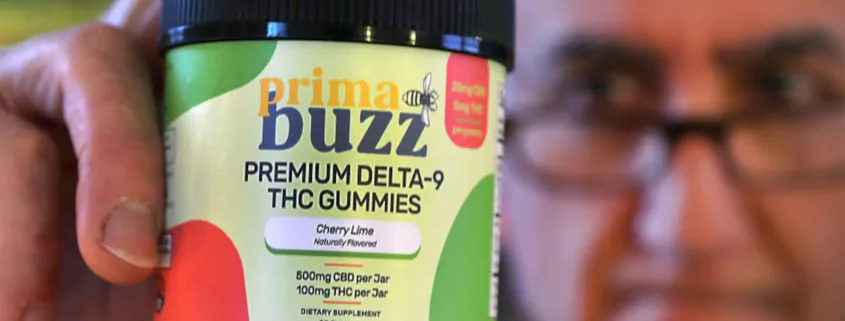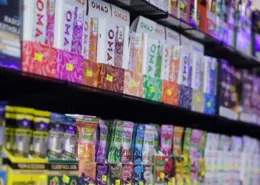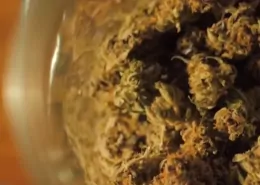Ohio Lawmakers Propose Restricting Delta-8 and CBD Sales
Ohio lawmakers are considering a new bill that would significantly restrict the sale of most ingestible and intoxicating hemp products, including Delta-8 THC and certain CBD products. Senate Bill 86, introduced by Republican Senator Steve Huffman, would require these products to be sold exclusively in marijuana dispensaries, with limited exceptions for lotions, salves, and certain beverages. The proposed legislation has sparked a debate between supporters who argue for tighter regulations to protect children and align hemp-derived intoxicants with state marijuana laws, and the hemp industry, which believes the bill would devastate small businesses and limit consumer choice.
Delta-8 THC, a less potent cousin of Delta-9 THC, has gained popularity in recent years due to a loophole in the 2018 federal farm bill that legalized the cultivation and sale of hemp. This legal gray area has allowed Delta-8 products, such as gummies, drinks, and vapes, to proliferate on the shelves of gas stations and convenience stores in states where recreational marijuana remains illegal. Senator Huffman, who introduced SB 86, believes that Delta-8 should be regulated in the same manner as marijuana, citing concerns about unregulated and untested products that could pose health risks.
While the hemp industry acknowledges the presence of “bad actors” and supports testing, regulation, and keeping products out of the hands of minors, they argue that an outright ban on retail sales is not the appropriate response. Instead, they advocate for strict rules on labeling, advertising, and testing. Retail store owners, like Robert Berg of Tribal Balance in Cleveland, worry that the proposed legislation would significantly impact their businesses, as many of their customers, especially older individuals, may be reluctant to purchase products from marijuana dispensaries.
Senator Huffman initially considered both an outright ban and age-restricted retail sales but ultimately decided that placing these products in dispensaries was the best compromise after discussions with Governor Mike DeWine and House Speaker Matt Huffman. The bill makes exceptions for hemp beverages, which could be sold to Ohioans 21 or older by retailers with C and D liquor licenses, citing the high cost of refrigeration equipment as a reason for this decision. The proposed legislation also includes a $3.50 per gallon tax on hemp beverage manufacturers and a 15% tax on gross receipts for other products.
As Ohio lawmakers consider Senate Bill 86, the debate over the regulation of Delta-8 and CBD products continues. While supporters argue for tighter controls to protect public health and align with state marijuana laws, the hemp industry maintains that strict regulation, rather than a ban on retail sales, is the appropriate response. As the bill moves through the legislative process, it remains to be seen how lawmakers will balance the concerns of public health, small businesses, and consumer choice in the regulation of Ohio’s hemp market.
- Is Vaping and Driving Illegal in Vermont? (2025 Guide) - July 18, 2025
- Vaping Laws in Vermont : A Comprehensive Guide for 2025 - July 18, 2025
- Malaysian Sarawak Considers Banning Vape Product Sales - July 18, 2025







